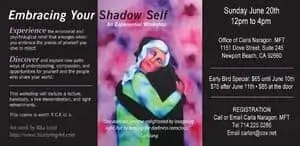Group therapy is a great way to introduce clients to the therapeutic process. Like dipping your toes in the water, you get a safe sample of what the experience will feel like without having to jump head first into the deep end of the pool. Groups would typically last an hour and a

Below I've listed some of the group topics that I have lead in the past and will lead again, as clients express an interest. Please let me know if you are intersted in participating in group therapy, and which of these topics might interest you most.
1. Trauma Resolution (Gender specific; an all-male or all-female group)
In this group, we will explore the biology of
how trauma is born and grows within our nervous system. We will seek to
normalize thoughts, feelings, reactions and physical sensations that might
have been to difficult to look at or accept. We will work to release
unresolved emotional and psychological pain using a combination of
experiential techniques, including but not limited to somatic experiencing,
Gestalt "empty chair," exercises, role-play, and letter writing. As long as
trauma remains a part of us, we are never able to live up to our full
potential of strength and happiness. This group can be a great way to begin
to release trauma and breathe a little easier.
2. Spiritual Exploration
Integrating wisdom from a variety of spiritual traditions, clients will explore the concept and practice of compassion, forgiveness, gratitude and other fundamental concepts common to a variety of spiritual traditions. We are living in a challenging time, when true spirituality may be harder to find, but is needed now more than ever. Spiritual growth can open new perspectives, enhance our personal sense of strength and confidence, bring a new level of meaning to our lives.
3. Embracing Your "Shadow" Self
Clients will learn how to face their dysfunctional behaviors with compassion. Often we try to hide, deny, or suppress the dark aspects of ourselves or our lives, but doing so only creates more problems in the long run. Self-sabotaging impulses and actions will be explored and understood through the lens of instinct and survival. Experiential techniques will be used to assist clients in the process of integrating the dissociated and/or disowned aspects of self.

4. Family Tree
Education and instruction will be given on the practical use of genograms, which are a specific kind of diagram that helps us better understand the dynamics without our families. With guidance and support, clients will construct a family tree that incorporates culture, addiction, family dynamics, strengths, challenges and other relevant factors that influence the development of individuals in a family system. Understanding our families in this way can bring enlightenment and a new sense of how to interact better with our family members.
Please don't hestiate to call or email me with any questions you might have about the groups listed above, or with any ideas you might have for a therapy group. I would be happy to talk with you and answer any questions you might have.
-Carla



